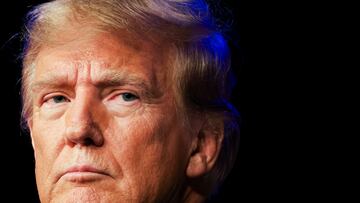When could the Supreme Court rule on the Donald Trump ballot eligibility case?
The Supreme Court has heard oral arguments in Donald Trump’s appeal of a Colorado Supreme Court decision that he is not qualified to run for president.

The US Supreme Court is set to decide on whether former president Donald Trump is eligible to have another run at the White House.
The high court has heard oral arguments in Trump’s appeal of a ruling by the Colorado Supreme Court that he is not qualified to run again for the highest office in the land because his actions on Jan. 6 amounted to insurrection.
The case was the result of a lawsuit filed by Colorado voters that cited an obscure constitutional amendment provision that was devised to prevent former Confederates from being elected into office.
READ ALSO: Watch: Biden confuses Mexico and Egypt
What is the 14th Amendment provision that Trump potentially violated?
The 14th Amendment, passed in 1868, says that former elected officials should be banned from holding office if found guilty of engaging in insurrection.
Section 3 of the 14th Amendment, also referred to as the Insurrection Clause, states:
“No Person shall be a Senator or Representative in Congress, or elector of President and Vice President, or hold any office, civil or military, under the United States, or under any State, who, having previously taken an oath, as a member of Congress, or as an officer of the United States, or as a member of any State legislature, or as an executive or judicial officer of any State, to support the Constitution of the United States, shall have engaged in insurrection or rebellion against the same, or given aid or comfort to the enemies thereof.
But Congress may by a vote of two thirds of each House, remove such disability.”
Trump’s lawyers argue that the provision does not specifically include the president of the country.
READ ALSO: Tucker Carlson’s interview with Vladimir Putin makes a splash
US Supreme Court expected to reject attempts to bar Trump from ballot
Many legal pundits believe the Supreme Court will overturn the Colorado court’s ruling to remove Trump’s name from the ballot.
Chief Justice John Roberts warns of partisan retaliation across different states if the High Court upholds Colorado’s decision.
“Surely there will be disqualification proceedings on the other side,” said Roberts to Trump’s challengers.
“A goodly number of states will say, whoever the Democratic candidate is, you’re off the ballot. And others for the Republican candidate, you’re off the ballot.”
Roberts cautions that this will result in having only a handful of states deciding the presidential election, and says this is “a pretty daunting consequence.”
READ ALSO: Tucker Carlson sits down with Russian President Vladimir Putin
Justice Elena Kagan also voiced concerns about a state having the power to ban a candidate in a presidential election.
“Why should a single state have the ability to make this determination not only for their own citizens, but for the rest of the nation?” She asked.
Justice Ketanji Brown Jackson, who was nominated by President Joe Biden, also expressed his misgivings, and echoed the central argument of Trump’s lawyers by saying that the 14th Amendment provision did not include the word “president,” even as it gave a list of other officials who would be covered by the provision.
The Supreme Court justices are expected to come out with their decision before Colorado holds its primaries on March 5, 2024.






